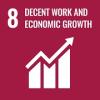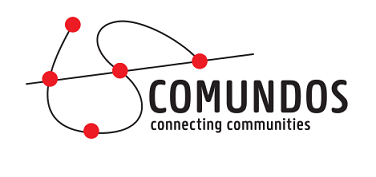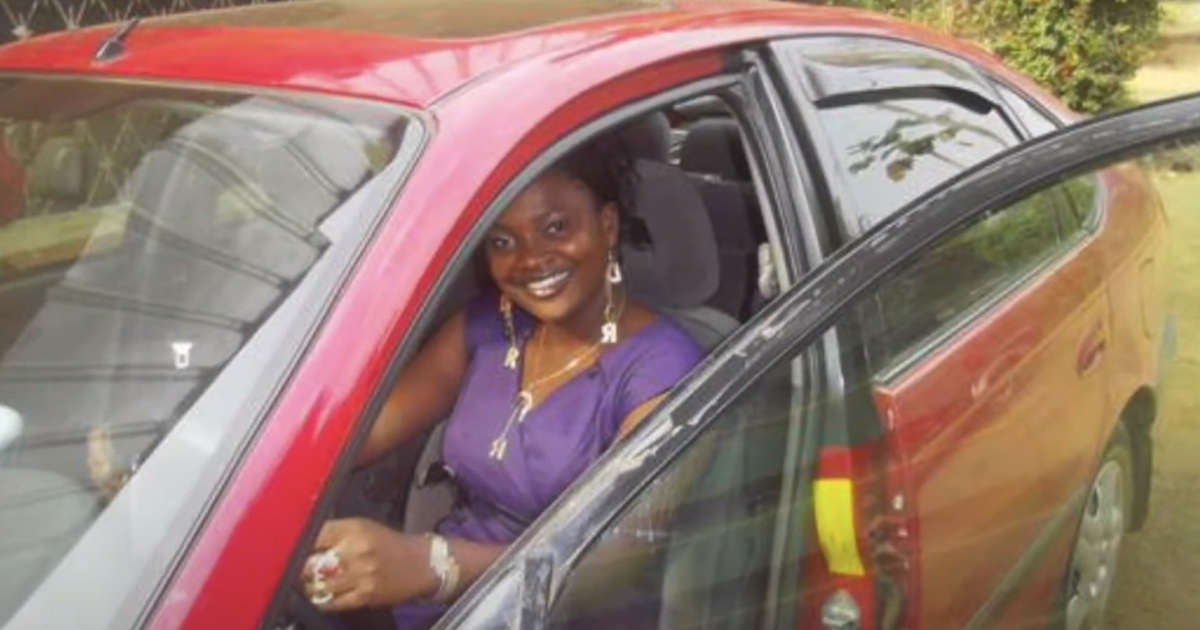SDG08 in the classroom: Decent Work and Economic Growth
“Promote sustained, inclusive and sustainable economic growth, full and productive employment and decent work for all”
At the end of this lesson, students will be able to:
- Understand the concept of "decent work"

- Identify vulnerable groups SDG8 advocates for (children, women, people with disabilities, immigrants)
- Understand the problem of the gender pay gap and propose solutions
- Understand the concept of 'informal employment' and explore the societal issues that may arise with an increase in the number of informal employment
- Understand the concept of “sustainable tourism”
- Analyzing digital stories on SDG8 by identifying the related target(s)
- Estimate data on SDG8 by playing a quiz
Economic growth should be a positive force for the whole planet.This is why we must make sure that financial progress creates decent and fulfilling jobs while not harming the environment. We must protect labour rights and once and for all put a stop to modern slavery and child labour.
Understand SDG8: watch the video here.
Everyone can help to make sure that we meet the Global Goals. What we can do?
Brainstorm session through the suggested questions:
- Does everyone have a decent job/work (productive work for women and men which ensures fair income in conditions of freedom, equity, security and human dignity)? Who is less likely not to have one?
- Is every child free to go to school, grow safe and healthy and study to freely choose the job they want to do in life? Do you know why?
- Worldwide young people, especially in Covid-19 times, are unemployed or out of education or training. Why do you think this is happening? What would you, as a young student, propose to incentivize work for young people?
- If a person can’t find regular decent jobs, what would they do? What sort of jobs will they end up doing?
- The gender pay gap (on average women earn about 12% less than men) is still an urgent gap to close. What solution do you propose to promote equal pay?
- More workers are being pushed into informal employment, placing them in precarious positions without social protections. Can you explain what "informal employment" is? What negative impact on society may be brought about by the increasing number of workers in informal employment?
- Target 8.9 states: "By 2030, devise and implement policies to promote sustainable tourism that creates jobs and promotes local culture and products". In your words, what is sustainable tourism? Are you a sustainable tourist?
Possible adaptations: (Online)This activity can be done with the use of online tools (i.e.Jamboard; Miro, Mentimeter)
Related materials:
● Why it Matters (2020) explains the goal, what "decent work means", the unemployment rate and offers some solutions.
● Infographic SDG8 (UN) presents the global employment situation under the background of a slowly recovering global economy.
Watch the three proposed stories and identify the related target(s). Afterwards, explain in your own words why the story is addressing the target(s) chosen. SDG8 targets can be found here.
 Story 1: The story of a successful pineapple grower (Philippines)
Story 1: The story of a successful pineapple grower (Philippines)
 Story 3: Child labour in Cameroon
Story 3: Child labour in Cameroon
Possible adaptation: this activity can be done individually or in pairs.
You can also select other digital stories of Comundos related to SDG8
This quiz is about UN Goal 8: Decent Work and Economic Growth. You can either use it at the end of your lesson to revise the topics you talked about or at the beginning of the lesson to challenge students prior knowledge and gain their attention.
 For SDG7 (decent work and economic growth) sheet, our favourite pedagogical twist is:
For SDG7 (decent work and economic growth) sheet, our favourite pedagogical twist is:
Multiple exposure: exposing the students to various opportunities over time to learn and engage with new knowledge and skills proves to be effective (Department of Education and Training, 2019). Therefore, complex and extensive topics can be presented to students over time (within a week-time instead in a single lesson) through different activities. In order to ensure effectiveness, the multiple exposures, spaced over time, should be planned in a strategic way (Department of Education and Training, 2019).
This lesson can be spread in different lessons, given the complexity of the topic.
If you have another pedagogical twist in mind, feel free to apply or check the pedagogical twist list.
● Report 2023 SDG8 (UN) to dive into data about this goal under the impact of the pandemic.
● Explained | Why Women Are Paid Less | FULL EPISODE | Netflix sheds light on the reasons behind the gender pay gap and examples of countries like Iceland that have overcome this gap.
Possible activity: After watching the documentary (in class or at home individually), make students research about the gender pay gap in their country and the history of changes in policies regarding the gender pay gap that has occurred.
Make them report their findings and come up with possible solutions that could overcome this gap in their country.
● Goed geld verdienen reflects on sustainable business models
● A healthy economy should be designed to thrive, not grow | Kate Raworth: in this Ted Talk the economist explains how we can move countries out of the hole and create regenerative, distributive economies that work within the planet's ecological limits. A sustainable economy looks like a doughnut, she says.
● VPRO Tegenlicht - De donut economie

A gift for Comundos
Over the years, Comundos has helped remote communities around the world by teaching critical thinking, media literacy and the use of communication technology.
To do this effectively, we need your support for computers, translations, courses and social media management.
Thank you .
BE11 1030 2973 8248





